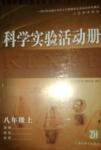题目内容
B
Singapore was just a sleepy city in South-east Asia more than 50 years ago. But the small dot on the world map has since developed into one of the richest nations thanks to its founder and first Prime Minister Lee Kuan Yew, the father of the state, who passed away on March 23, 2015 at the age of 91.
Lee grew up in the Singapore that was part of the British Empire. As a law major who graduated from Cambridge University and the founder of the People's Action Party, he became Singapore's first Prime Minister in 1959 when British agreed to the island's self-rule.
Lee was a leader with vision(远见).He knew that without agriculture and natural resources, Singapore could only find a way out by developing it?self into a place perfect for business. So he began with a few simple ideas : Singapore needed respect for elders and the law, hard work, and the idea that the needs of society are greater than the individual's. He united Chi?nese, Indians and Malays, making English a common language. He fought corruption and even banned chewing gum. That helped change Singapore from a poor city in the 1950s to a world business centre with a GDP per ca?pita of $ 55 ,000, reported the Financial Times.
Lee left the office of Prime Minister in 1990 but remained a member of parliament. He resigned as "Minister Mentor" in 2011. He was happy with his work; "I have no regrets. I have spent my life, so much of it, building up this country. There's nothing more that I need to do."
To the world, Lee was one of Asia's most popular politicians. He was one of the first to spot the potential of China under a former leader Deng Xiaoping and contributed to China's reform and opening up. "No small num?ber of this and past generations of world leaders have asked for his advice on governance and development," said the US President Obama. "Lee is a vi?sionary and a true giant of history."
5. How long did Lee Kuan Yew serve as Singapore's Prime Minister?
A. 52 years. B.31 years.
C.56 years. D.50 years.
6. From the passage, we can see Lee Kuan Yew was a(n) per?son.
A. confident and hard-working
B. honest and determined
C. wise and devoted
D. modest and optimistic
7. We can draw a conclusion from the passage that .
A. under British rule, Singapore developed very fast
B. Lee made no difference to China's development
C. Lee foresaw that China would rise and become powerful
D. Lee wasn't very content with his efforts and achievements
8. The last paragraph mainly tells us_____ .
A. Lee's contributions to other countries
B. Lee's relations with China
C. Lee's popularity in Asia
D. Obama's admiration for Lee
B
[文章大意]这是一篇传记类的文章,主要讲述了新加坡前总理李光耀的人生传奇经历和主要贡献。
5.B推理判断题。根据文章的第二段的"…he became Singapore's first Prime Minister in 1959 when British agreed to the island's self-rule."和第四段的"Lee left the office of Prime Minister in 1990 but remained a member of parliament."可知选B。
6. C推理判断题。根据全文理解,尤其是根据文章倒数第二段的"…'I have no re?grets. I have spent my life, so much of it, building up this country. There's noth?ing more that I need to do."'可知选C。
7.C 推理判断题。根据文章最后一段中"He was one of thfe first to spot the poten?tial of China under a former leader Deng Xiaoping and contributed to China's re?form and opening up."可知他预见了中国的发展。故选C。
8.A段落大意题。仔细阅读文章最后一段可知该段主要讲述了李光耀对其他国家的贡献。故选A。

 科学实验活动册系列答案
科学实验活动册系列答案